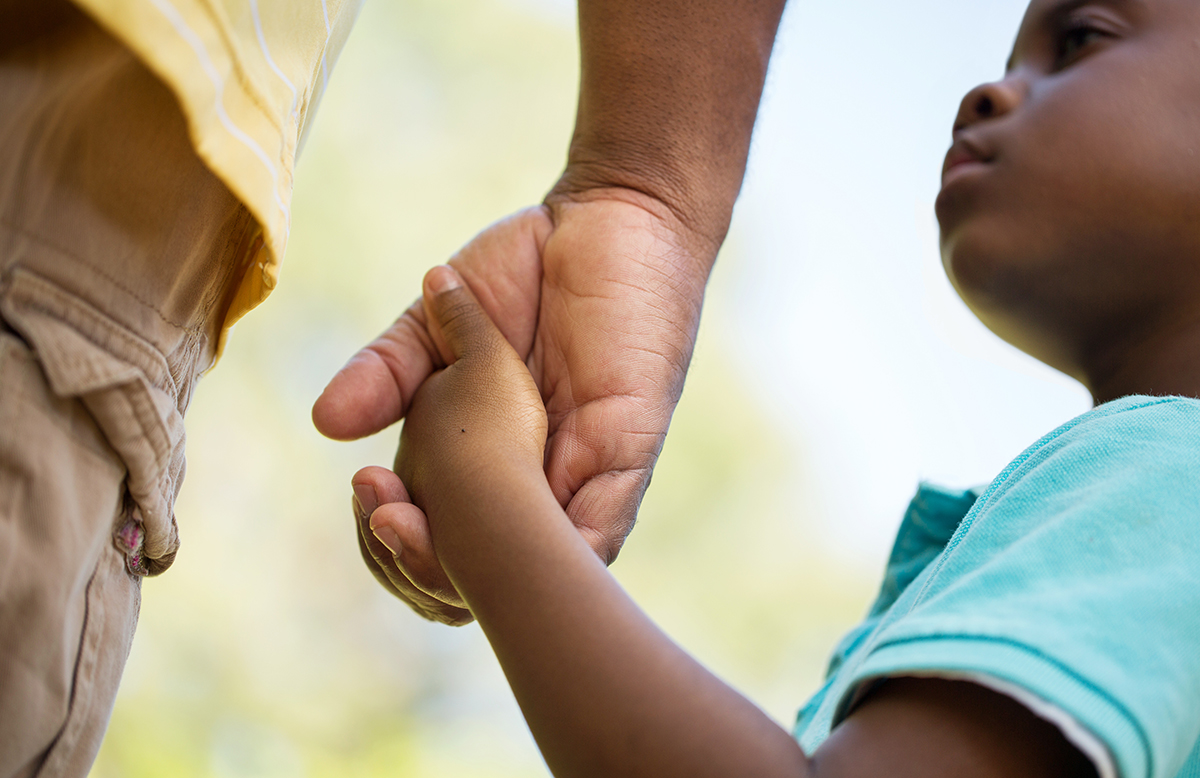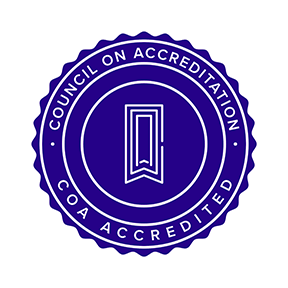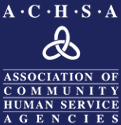

In honor of Black History Month, Trinity Youth Services (TYS) would like to shine light on the daunting effects of generations of systemic racism on children of color, particularly Black children, within the American foster care system. We would also like to highlight some of the important work TYS is doing to ensure that every child finds the warmth and safety of a loving home, and to share how you can get involved in making a significant and lasting difference in the lives of children.
In 2019, Child’s Rights reported a third of children entering the U.S. foster care system were young people of color. While on a larger scale the rate of children entering foster care has decreased, what remains at stake is the state of being for those minority groups within the system.
American Academy of Pediatrics found that children placed in foster care were in poor mental and physical health relative to children in virtually every other type of family situation. This was found, in part, to be a result of environmental factors such as a child’s demographic characteristics. Given Black children face a greater number of environmental issues, they are more susceptible to environmental racism that as a result, causes a Black child to be more likely diagnosed with a learning disability, depression, anxiety, behavioral issues, obesity, and speech/hearing/visual issues.
According to KidsCount, Black children in foster care were 32% less likely to be adopted then their white counterparts, leaving them without permanency and potential to heal from the trauma they have experienced and posing them at a higher risk to undergo more trauma. Since Black children are also more likely to remain in foster care and less likely to be reunified with their families, Child’s Rights reported that they are more likely to be placed in group care, age out in greater numbers, and become involved in the criminal justice system, all of which have lasting effects on their lives. In an article written by American Academy of Pediatrics, they found that when any child enters foster care and especially when they remain in foster care, they face development issues that affect their relational attachments, sense of time and their responses to psychological stress. So, for a Black child, whose rate of stay within the system is longer, their likelihood for experiencing further environmental racism, greater levels of mental and physical health issues, lack of permanency, and developmental delays are greater.
TYS is committed to fighting against systematic racism by pushing toward inclusiveness and equality through our Diversity, Inclusion, Value and Equity (DIVE) team. Staff members throughout the entire agency have been meeting biweekly to allow for discussion of various topics such as equitable practices, positive reinforcements and U.S./political climates. In addition, staff have been attending “Equity in Action” webinars created by Claremont Lincoln University (CLU), where CLU faculty members have been sharing resources and ideas relating to the four domains that make up their Claremont Core: Mindfulness, Dialogue, Collaboration, and Change. Their Claremont Core aims to foster positive change and growth for “mindful inquiry, skillful dialogue including collaboration with diverse viewpoints.”
To build off the TYS staff’s DIVE program, a few members have also been working with the Claremont McKenna University (CMU) SOURCE team, who have been working on creating a curriculum for TYS’s foster youth. The program consists of a five-month long curriculum that aims to create an open and safe environment that allows youth the space to discuss their experiences and opinions regarding, but not limited to, D.I.V.E.S topics (Diversity, Inclusion, Values, Equity, and Social Justice). The CMU SOURCE team has put in a tremendous amount of work in to build a solid and impactful curriculum for the youth. TYS will continue to work closely with the CMU SOURCE team so that together they can create a curriculum that is sustainable.
It is crucial that we continue to shine light on the generations of systemic racism Black children are facing in the foster care system. TYS is dedicated to do so by continuing to advocate and break down barriers for Black children. Join us in the fight against racism.
Ways You Can Help:
Foster or Adopt: TYS’s mission is to help children and families create a better future. You can change the trajectory of a child’s life by becoming a resource parent and providing the love and support children need to be successful in life. Contact TYS representative, Carlos Lopez at clopez@trinityys.org or 888-346-9645 to learn more about adopting or becoming a foster parent.
Donate: If you cannot foster or adopt, consider donating to organizations like the Children’s Foundation of America, who help provide resources of the highest quality to children in foster care. Your donation helps keep siblings from getting separated in foster care, provides scholarships and other essential needs to help create positive outcomes for foster youth.
Volunteer: Contribute your time by volunteering to help advocate and raise awareness for the needs of children in foster care. Use social media to share articles like this one or sign up here to participate in a volunteer project.
 Isabel Millward-Pena, Communications Specialist
Isabel Millward-Pena, Communications Specialist
Isabel contributes content for our social media, blog, newsletters and promotional materials. She recently earned a bachelor’s degree in English from California State University San Bernardino and is currently working on her master’s degree. Isabel began working at Trinity as an intern, was hired as clerical, and was then promoted to communications in our development department. Prior to her work at Trinity, she was a substitute instructional aid and a supervisor at Starbucks. She has also volunteered as an aid at local elementary schools and notably achieved “Partner of the Quarter” at Starbucks in 2017. Isabel is an active member of Trinity’s Diversity, Inclusion, Value and Equity (DIVE) team and volunteers her time at the Children’s Foundation of America.




